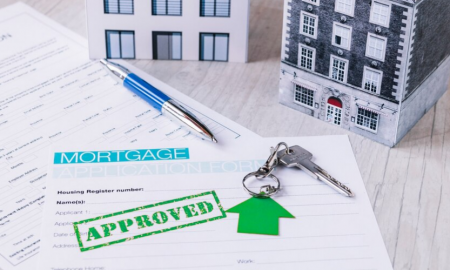
How Retirees Can Avoid Credit Card Debt

Retirement is that magical time when you finally hang up your work boots and embrace a life of leisure and hobbies. But lurking in the shadows of this newfound freedom can be a sneaky adversary: Credit card debt. It is a common issue, yet it is often brushed under the carpet.
Let’s figure out how you, as a retiree, can sidestep this trap and enjoy your golden years worry-free.
Understand the Risk
First things first, understanding why retirees are at risk of falling into credit card debt is crucial. Fixed incomes, unexpected medical expenses, and the desire to help out family can quickly turn the plastic in your wallet from friend to foe.

Mike / Pexels / Credit card debt after retirement is the commonest issue that is often ignored.
Needless to say, with the temptation of online shopping, spending has never been easier.
Budget Like a Pro
Budgeting is not just for those 9-to-5ers. It is your new best friend in retirement. Start by tracking your expenses. Yes, every single penny. There are loads of apps and tools out there to help, or you can kick it old school with pen and paper.
The goal is to understand where your money goes each month and then create a budget that aligns with your retirement income. Remember to include occasional splurges – You have earned it, after all!
Trim the Fat
Once you’ve gotten a handle on your expenses, it is time to play a game of financial ‘trim the fat.’ Identify areas where you can cut back. Maybe it is that premium cable package you rarely use, or perhaps eating out has become more routine than special.

Ageing / Pexels / After retirement, make sure to budget wisely so that your money does not go astray.
Small adjustments can lead to big savings over time.
Use the Debt Snowball Method to Pay Off Existing Debts
If you are already facing credit card debt, do not panic. The debt snowball method can be your knight in shining armor. Here is how it works: You pay off your smallest debt first while making minimum payments on the others.
Once the smallest debt is paid off, move to the next smallest, and so on. Thus, it is a morale booster and a practical strategy.
Use Credit Wisely
Credit cards are not inherently evil. In fact, they can be quite beneficial if used wisely. Use them for regular purchases you can pay off each month. This helps maintain a good credit score and often comes with perks like cashback or travel points.

Karolina / Pexels / If you have existing debts, make sure to pay the smallest first and make minimum payments on other debts.
Just remember, if you can not pay it off at the end of the month, reconsider the purchase.
Make Emergency Funds Your Financial Safety Net
An emergency fund is vital. It is your financial safety net for unexpected expenses like a car repair or medical expenses. Aim to have three to six months’ worth of living expenses tucked away. It might sound daunting, but even a small amount saved regularly adds up.
However, it is essential to note that understanding your financial situation is empowering. Stay informed about changes in tax laws, investment opportunities, and retirement benefits. Knowledge is power, especially when it comes to managing money in retirement. So, make sure to stay informed about your finances.
More inFinancial Advisory
-
10 Unique Things to Do in Tokyo for Couples in 2024
Tokyo is a city where the extraordinary is the norm. From towering skyscrapers to tranquil gardens, this bustling metropolis offers an...
June 13, 2024 -
How to Make Money on TikTok – 8 Proven Strategies
TikTok isn’t just a platform for viral dance challenges and funny skits anymore. It’s a goldmine of opportunity for creative minds...
June 6, 2024 -
Tech Giant Cisco Likely to Lay Off ‘Almost 350’ Employees As Part of Its ‘Restructuring Plan’
Is your favorite tech company feeling the pinch? Recent reports suggest that Cisco (CSCO) is planning to lay off ‘almost 350...
May 31, 2024 -
How Many Mortgages Can You Have? Understanding the Limits
Are you pondering the idea of delving into the realm of multiple mortgages? Whether it’s for expanding your property portfolio, securing...
May 23, 2024 -
What You Ought to Know About Dominican Republic Rum
When you think of the Dominican Republic, your mind might drift to images of beautiful beaches and vibrant dance rhythms. But...
May 16, 2024 -
Are Mobile Homes Worth Investing? A Deeper Look
Are mobile homes a good investment? This question often pops up among potential homeowners and investors alike, looking for an affordable...
May 9, 2024 -
10 Best Stocks to Invest in 2024 for Smart Investors
In a world where economic growth seems to be hitting the brakes, the hunt for the best stocks to invest in...
April 30, 2024 -
Will Breaking a Lease Affect Your Credit? The Real Impact
Breaking a lease isn’t just about packing up and moving on; it’s a decision that can have lasting financial implications. While...
April 23, 2024 -
Is Traveling a Hobby? Exploring the Reasons and Ways to Travel More
Have you ever scrolled through social media and stumbled upon the question, “Is traveling a hobby?” It’s a thought-provoking query that...
April 16, 2024















You must be logged in to post a comment Login